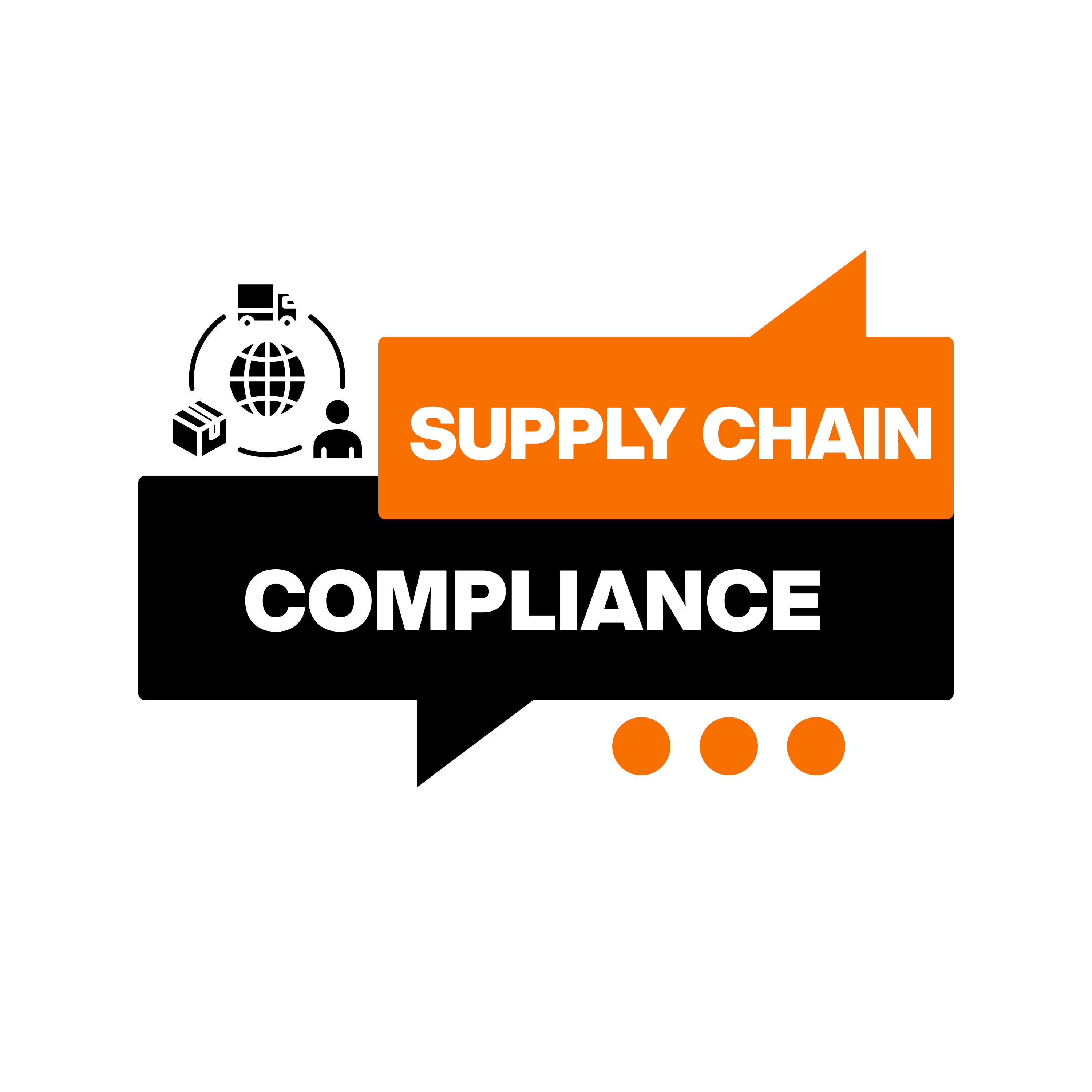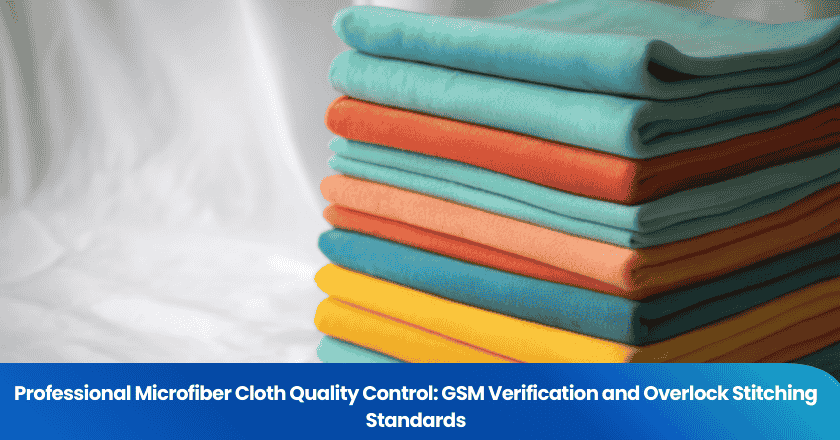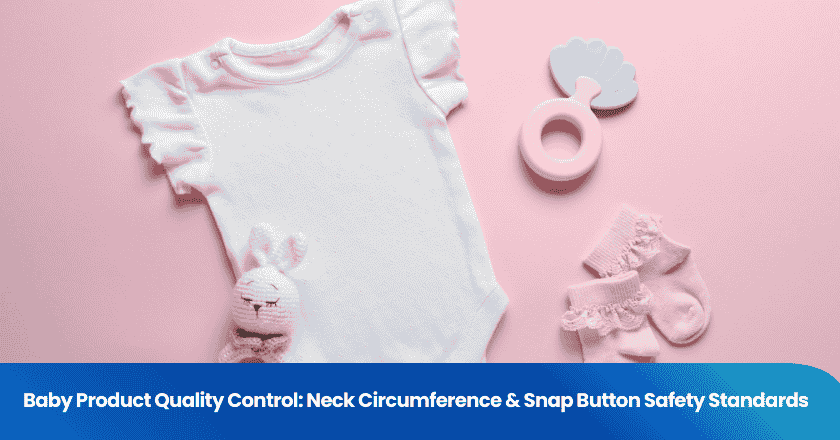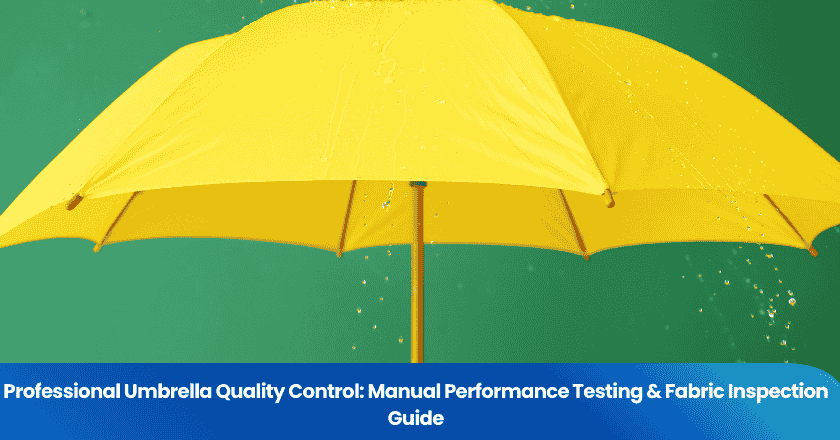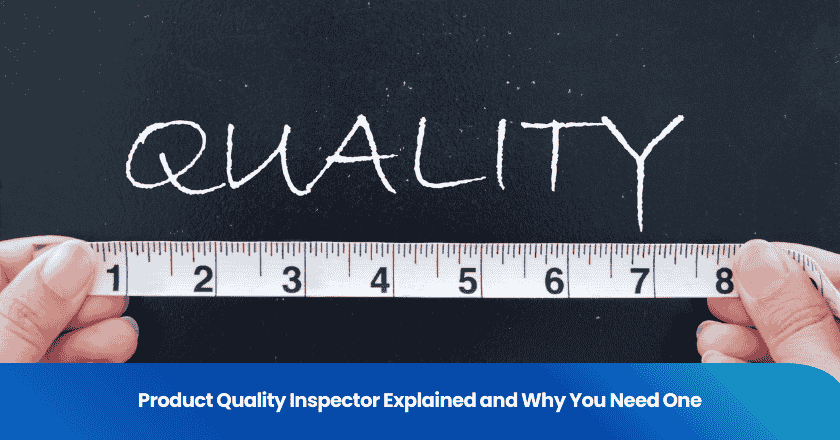
A product quality inspector plays a critical role in your business by ensuring products meet established quality standards. You rely on their expertise to inspect and test products, document findings, and collaborate with production teams. Quality remains essential for manufacturing success. If you neglect product quality inspection, you risk product recalls, supply chain disruptions, and increased third-party liabilities. A product quality inspector helps you eliminate defects, increase customer satisfaction, and protect your business from legal complications.
- Product recalls damage your reputation and finances.
- Supply chain disruptions raise costs and introduce quality issues.
- Poor product quality increases third-party liabilities.
Key Takeaways
- Product quality inspectors ensure that products meet established standards, preventing defects and enhancing customer satisfaction.
- Regular inspections and documentation help identify issues early, reducing the risk of costly recalls and legal complications.
- Quality control inspectors play a vital role in maintaining compliance with industry regulations, protecting your business from financial penalties.
- Investing in quality control can lead to significant cost savings and improved product reliability, benefiting your overall business success.
Product Quality Inspector Role
What Does a Product Quality Inspector Do
You play a vital role as a quality control inspector. Your job focuses on maintaining high standards throughout the production process. Every day, you carry out a range of job duties that keep your workplace running smoothly and ensure product quality. Here are the main responsibilities you handle:
1. Inspection and Testing: You perform regular inspection of products and materials. You use visual checks, precise measurements, and specialized testing equipment to confirm that everything meets required specifications.
2. Documentation: You keep detailed records of your inspection results. Accurate documentation helps with audits and supports ongoing process improvements.
3. Compliance Monitoring: You make sure that all products and processes follow company policies and industry standards. This job duty protects your business from costly mistakes.
4. Problem Identification and Resolution: You spot defects quickly. You work with production teams to fix issues and prevent them from happening again.
5. Equipment Calibration and Maintenance: You regularly calibrate and maintain your tools and machinery. This step ensures that your inspection results remain reliable.
6. Process Audits: You audit production processes to find inefficiencies. Your feedback helps improve quality control procedures.
Note: As a quality control inspector, your job duties require attention to detail, strong communication skills, and a commitment to quality at every stage.
Where Product Quality Inspectors Work
You find quality control inspectors in a variety of work environments. Most inspectors work in manufacturing plants, where they oversee assembly lines and finished goods. You may also work in warehouses, checking incoming shipments and stored inventory for quality issues. Some inspectors operate in laboratories, using advanced equipment to test materials and products.
You might inspect products in industries such as electronics, automotive, food processing, pharmaceuticals, and textiles. Each environment presents unique challenges, but your role remains focused on upholding quality standards. Your job often requires you to move between different areas, such as production floors, storage facilities, and quality labs.
Quality control inspectors adapt to changing conditions. You may work shifts that align with production schedules. Your job duties can include both hands-on inspection and administrative tasks, such as preparing reports and participating in team meetings. No matter where you work, your role as an inspector is essential for maintaining product quality and supporting business success.
Quality Control Inspector Responsibilities
Inspecting Products and Materials
As a quality control inspector, you start your job by inspecting products and materials with precision. You follow standard procedures to ensure every item meets the required specifications. Your job often begins with retrieving a random sample from the manufacturing facility. You read through the product specifications and design documents to understand what standards you must uphold. You conduct a visual inspection of both the packaging and the product itself. Physical testing takes place on-site, depending on the product type. You compile all gathered data into a detailed inspection report.
- You check for visible defects or deviations such as scratches, discoloration, and assembly flaws.
- You evaluate workmanship and packaging integrity.
- You capture notes, photos, and measurement data for each defect.
Quality control inspectors use sampling methods like Acceptable Quality Limit (AQL) to set benchmarks for acceptable quality levels. This approach helps you maintain consistency and reliability in your job.
Identifying Defects
Your job as an inspector requires you to identify defects or deviations quickly and accurately. You use several inspection methods to spot problems in products, especially in industries like electronics and automotive. The table below highlights common defects inspectors find using different techniques:
| Inspection Method | Common Defects Identified |
|---|---|
| Visual Inspection | Scratches, dents, misalignments on vehicle surfaces |
| Dimensional Inspection | Incorrect measurements affecting fitment of parts |
| Statistical Process Control (SPC) | Variations in manufacturing processes leading to defects |
| FMEA | Potential failures in safety-critical components |
| End-of-Line (EOL) Testing | Malfunctions in electrical, mechanical, and safety systems |
| Non-Destructive Testing (NDT) | Internal defects like cracks or voids in critical components |
| Automated Optical Inspection (AOI) | Misalignment, scratches, or incorrect component placement |
Inspectors also look for design issues, incorrect assembly techniques, inconsistent joints or welds, and fastener problems. Your job is to ensure that every product meets the required specifications and does not pose safety risks.
Reporting and Documentation
You play a key role in reporting and documenting your findings. Quality control inspectors use inspection management software to log results in real time. You record observations and actions directly into the system, which ensures traceability. You generate daily summaries to keep stakeholders updated on inspection outcomes.
- You prepare test reports based on your findings.
- You communicate identified defects to supervisors for further analysis and resolution.
- Many companies automate the inspection process using advanced vision systems.
In regulated industries, you must document findings according to international standards like ISO 9001 and FDA regulations. These standards require you to investigate and record any defects or deviations from specifications, ensuring compliance and accountability in your job.
Why Quality Control Inspectors Matter
Ensuring Product Quality
You rely on quality control inspectors to maintain high standards throughout your production process. Their job involves inspecting products and materials at every stage, using quality control techniques to verify that each item meets specifications and production standards. Inspectors use visual checks, measurements, and advanced testing equipment to catch defects early. This proactive approach reduces the risk of faulty products reaching your customers.
Quality control inspectors deliver measurable improvements in product quality. The following table highlights the impact you can expect after hiring inspectors in your manufacturing operations:
| Improvement Type | Measurement |
|---|---|
| Reduction in production variability | 20% |
| Annual savings in production costs | $500,000 |
| Increase in product reliability | 15% over two years |
| Reduction in defects in raw materials | 25% within one year |
| Improvement in product safety | 18% |
| Reduction in production downtime | 30% |
| Reduction in rework costs | 22% over three years |
| Reduction in product defects | 25% over four years |
| Reduction in defects in raw materials | 30% |
| Improvement in product reliability | 20% |
Inspectors help you achieve consistent quality by monitoring every step of production. Their job ensures that your products meet specifications and quality standards, which leads to fewer defects and higher reliability. You see direct benefits in reduced downtime, lower rework costs, and improved product safety.
Protecting Business Reputation
Your business reputation depends on the quality of your products. Quality control inspectors play a crucial role in protecting your brand image by preventing defective goods from reaching the market. Their job involves thorough inspection and documentation, which helps you avoid costly product recalls and warranty claims.
Comprehensive testing throughout the assembly line minimizes financial and reputational risks. Inspectors ensure that every product part meets required standards before moving forward in the manufacturing process. This approach reduces the likelihood of recalls and warranty claims, saving you time and resources.
Quality control inspectors also foster a positive workplace environment. Their commitment to quality encourages employee ownership and pride in the products you deliver. This attitude reflects positively on your company’s reputation. According to a PWC study, 52% of U.S. consumers would consider switching brands based on product quality. Inspectors help you maintain customer loyalty by ensuring that your products consistently meet expectations.
In industries where safety is critical, such as pharmaceuticals and food, inspectors play an even greater role. Their job ensures compliance with safety standards, which enhances your reputation and builds trust with consumers.
Meeting Regulations
You face strict regulations in many industries. Quality control inspectors help you comply with international product safety and quality standards. Their job includes conducting inspections at various stages of production to identify issues early and ensure compliance with established standards.
- Inspectors conduct inspections during different production phases to catch problems before they escalate.
- They verify that your products meet safety and quality standards.
- Inspections prevent wasted time and materials by identifying defects early.
Third-party inspectors provide unbiased assessments that help you meet regulatory requirements. Their objective reports guide you in complying with international standards, such as ISO and FDA regulations. By maintaining thorough documentation and following quality control techniques, inspectors help you avoid legal complications and demonstrate your commitment to safety.
In-line testing during manufacturing is crucial for maintaining high-quality standards and minimizing risks associated with product recalls. Inspectors detect and correct component issues early, preventing faulty products from reaching consumers. This proactive approach protects your reputation and helps you maintain consumer trust.
Quality control inspectors serve as your defense against legal claims. Their job ensures that you have taken reasonable steps to guarantee product safety and compliance with regulations. You benefit from reduced legal costs, improved product quality, and a stronger position in the marketplace.
How to Become a Quality Control Inspector
Skills and Qualifications
You need a strong foundation in both education and practical skills to succeed as a quality control inspector. Most inspectors begin with an associate’s degree or technical certification in quality control, engineering, or manufacturing. Advanced education, such as a bachelor’s degree in industrial engineering or quality management, can help you stand out in the job market. You must pay close attention to detail, as inspectors often spot tiny defects that others may miss. Problem-solving skills allow you to identify issues and recommend solutions quickly. Technical knowledge is essential, especially when using inspection tools like micrometers and calipers. Analytical thinking helps you interpret inspection data and make informed decisions. Communication skills enable you to report findings clearly and work with teams to resolve quality issues. Time management ensures you complete multiple inspections and meet deadlines. Familiarity with quality control tools and techniques is vital for inspectors in any industry.
| Skill/Qualification | Description |
|---|---|
| Associate’s Degree or Technical Certification | Enroll in a quality control, engineering, or manufacturing program for hands-on training. |
| Advanced Education | A bachelor’s degree in manufacturing, industrial engineering, or quality management is beneficial. |
| Attention to Detail | Ability to spot even the smallest defects in products or processes. |
| Problem-Solving | Identify issues, investigate root causes, and recommend corrective actions. |
| Technical Knowledge | Familiarity with inspection tools like micrometers and calipers. |
| Analytical Thinking | Analyze inspection data and interpret results accurately. |
| Communication Skills | Report findings clearly and collaborate with teams to resolve quality issues. |
| Time Management | Manage multiple inspections and deadlines while ensuring quality standards are met. |
| Certifications | Certifications like Certified Quality Inspector (CQI) enhance qualifications and job prospects. |
| Familiarity with QC Tools and Techniques | Proficiency in measuring instruments, testing equipment, and statistical tools is essential. |
Tip: You can improve your skills by practicing with real inspection tools and reviewing case studies from different industries.
Training and Certification
You must complete specialized training to become a quality control inspector. Training programs cover the fundamentals of quality control, measurement techniques, ISO compliance, defect identification, and root cause analysis. Certified instructors lead these courses, providing hands-on experience with inspection tools and real-world scenarios. You can choose flexible learning options, including on-site, off-site, blended, or self-paced courses. Industry-specific training prepares inspectors for roles in manufacturing, aerospace, and other sectors. Upon completion, you earn certifications aligned with ISO and Six Sigma standards, which boost your job prospects and career advancement.
| Aspect | Details |
|---|---|
| Comprehensive Course Content | Covers fundamentals of quality control, measurement techniques, ISO compliance, defect identification, and root cause analysis. |
| Certified Instructors | Training led by industry professionals with hands-on experience in quality assurance. |
| Hands-On Practical Training | Use of real inspection tools and case studies to enhance skills. |
| Certification | Courses aligned with ISO and Six Sigma, providing recognized certifications upon completion. |
| Flexible Learning Options | Offers on-site, off-site, blended learning, and self-paced courses. |
| Industry-Specific Training | Custom programs for various industries like manufacturing and aerospace. |
| Career Advancement | Certification improves job prospects in quality control roles. |
You can complete a basic training program in as little as four hours, with costs starting at $329. This investment prepares you for a rewarding job as a quality control inspector, helping you maintain high standards and deliver quality products.
Risks Without Product Quality Inspectors
Increased Defects
You face significant risks when you do not employ quality control inspectors in your operations. Without these inspectors, your job becomes much harder, and the likelihood of defects rises sharply. You may notice assembly defects, process-related issues, functional failures, and material inconsistencies. These problems often result from human error, poor training, or faulty equipment. The following table shows common types of defects and their causes:
| Type of Defect | Examples/Details | Causes/Consequences |
|---|---|---|
| Assembly Defects | Misaligned components, missing fasteners, incorrectly installed parts | Human error, inadequate training, faulty fixtures and tools |
| Process-Related Defects | Inconsistent production speeds, equipment malfunctions, poorly calibrated machines | Equipment maintenance issues, operator errors, lack of standard operating procedures |
| Functional Defects | Electrical failures, mechanical malfunctions, software bugs | Design flaws, component quality issues, assembly errors |
| Material Defects | Impurities in metals, inconsistent polymer blends, weakness due to improper curing | Supplier quality control failures, lack of material analysis, improper storage conditions |
You see defect rates climb when inspectors are absent. Insufficient oversight means flaws go undetected, and you miss opportunities to correct issues during production. This lack of quality control inspectors leads to more defective products reaching your customers.
- You experience increased defect rates due to poor oversight.
- Undetected flaws remain in products.
- Problems persist throughout production, raising the likelihood of defects.
In the aerospace industry, companies have struggled with rising defects and costly rework when they lacked enough inspectors. Expanded operations and new technologies only made these challenges worse, showing how vital the job of quality control inspectors is for maintaining standards.
Financial and Legal Issues
Neglecting the job of quality control inspectors exposes your business to serious financial and legal risks. You may face customer complaints, product recalls, and even lawsuits if you do not resolve non-conformances. These problems damage trust and erode brand loyalty. Operational efficiency drops, causing delays and disrupting production cycles. You spend more on rework, waste, and fines for non-compliance, which hurts your profitability.
1. You risk customer dissatisfaction, leading to complaints and legal actions.
2. Operational efficiency suffers, causing delays and inefficiencies.
3. Financial losses increase due to excessive rework and waste.
4. Non-compliance with standards results in fines, audits, and loss of certification.
5. Employee morale drops, leading to lower productivity and higher turnover.
A mid-sized telecom provider saw a rise in service disruptions and customer complaints after expanding its services. The outdated quality control department could not manage the network complexities, resulting in a tarnished reputation and lost market share. In the metals and semiconductor industries, inconsistent product quality led to increased returns and reduced customer satisfaction. These real-world cases highlight the importance of inspectors in protecting your business from financial and legal consequences.
Quality control inspectors play a critical role in your job. Without them, you risk increased defects, financial losses, and legal complications. You must prioritize their job to maintain quality and safeguard your business.
You rely on quality control inspectors to maintain high standards in your operations. Inspectors ensure product consistency, reliability, and compliance with evolving industry standards. Their job helps you identify risks early, reduce waste, and protect your reputation. Quality control inspectors contribute to customer satisfaction and long-term business success. You should evaluate your current quality processes and consider hiring inspectors for critical areas such as automotive, aerospace, electronics, and food safety.
| Key Benefits of Quality Control Inspectors | Description |
|---|---|
| Product consistency and reliability | Inspectors uphold quality at every stage |
| Risk mitigation and compliance | Inspectors prevent costly recalls and legal issues |
| Enhanced customer satisfaction | Inspectors deliver products that meet expectations |
Tip: Regularly review your quality control strategy to ensure inspectors support your business goals and industry requirements.
FAQ
What skills do you need to become a product quality inspector?
You need attention to detail, problem-solving ability, technical knowledge, and strong communication skills. You also benefit from experience with inspection tools and quality control techniques.
How often should you inspect products during production?
You should inspect products at multiple stages. Early, mid, and final inspections help you catch defects quickly and maintain consistent quality throughout the process.
Can you work as a quality control inspector without certification?
You can start entry-level roles without certification. However, earning certifications like CQI improves your job prospects and demonstrates your commitment to quality.
What industries hire product quality inspectors?
You find opportunities in manufacturing, electronics, automotive, food processing, pharmaceuticals, and textiles. Each industry values inspectors who ensure products meet strict standards.
Why is documentation important in quality control inspection?
Documentation provides proof of compliance, supports audits, and helps you track recurring issues. Accurate records allow you to improve processes and maintain accountability.
Grow your business with TradeAider Service
Click the button below to directly enter the TradeAider Service System. The simple steps from booking and payment to receiving reports are easy to operate.

